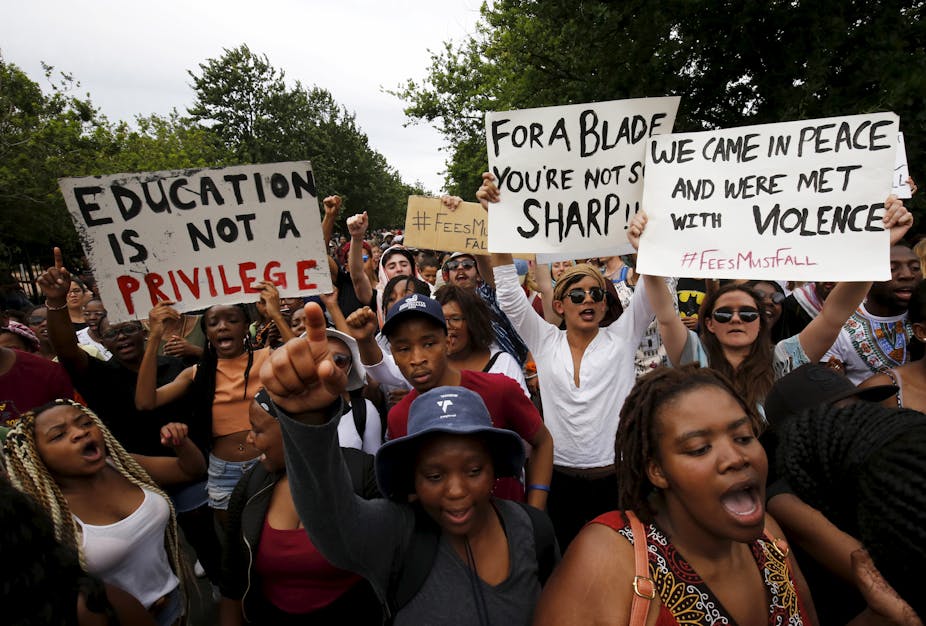It has been an exciting month for Africa, not least for the highly controversial elections in Tanzania, where the annulment of the entire vote in Zanzibar has played an important role in extending the ruling party’s command of government.
Not that the opposition coalition offered new policies; it was, after all, led by a former senior figure of the ruling party. But it did offer less misgovernment, less corruption, less leakage as utilities and facilities trickled down. In this sense, less would lead to more; it would certainly lead to a major change as to who controlled the levers both of power and patronage.
Patronage and the use of personal links as a form of public administration become rapid pathways to corruption, and help to concentrate power in closed circles. This is the number one criticism of South Africa’s ANC government – and in the last few weeks, it’s been voiced even more loudly than usual
The uprising of South African students throughout October was a direct attack on the ANC, and not just an explosion of anger at excessively high fees. South Africa’s students are enraged at a general funding crisis – but there has also been a powerful revival of the old mantras of black consciousness put forward by the late Steve Biko and the Pan Africanist-Congress, the one party that, in the liberation struggle, briefly challenged the ANC.
The government landed several own goals in its handling of the protests, of which it was itself very much the target. Many students waved protest placards bearing the words “Blade is Blunt” – a reference to the minister of higher education, Blade Nzimande. Nzimande is leader of the South African communist party, a key part of the ANC coalition, and is a key supporter of President Jacob Zuma.
The protests were presaged earlier this year by a successful student push to take down the statue of Cecil Rhodes at the University of Cape Town, and to remove other symbolic remnants from the era of white rule, such as the name of Rhodes University. But these were only superficial complaints compared to the deep discontent with what is still seen as a white-dominated economy. In South Africa, as nowhere else, the segue into a critique of a white-led international neoliberalism is seamless.

Of course, this critique is naïve in a world of competing globalisms and conflicting currents of capital domination. However the Chinese are hardly popular in today’s South Africa either – where Chinese projects and goods have displaced local manufactures and livelihoods.
Beyond reform
The thrust of the student demands is reforming the universities: reduced fees, greater access, more sympathetic teaching. The vice-chancellor of Rhodes University marched with his students. The esteemed Adam Habib, vice-chancellor of Witwatersrand, sat with his students in an all-night occupation. Granted he would have found it hard to leave - but he sat and listened.
Ultimately, the ANC must not stop at halting fee rises, which Zuma finally did. It must quickly reduce fees and increase funding for universities – the vice-chancellors joining their students in uprising will have known that Nzimande was never going to do that.
But the government must do much more besides. Because South Africa as a whole has become such a badly mismanaged state, it’s now almost a textbook example of how patronage can drive a difficult but promising country into the ground, sowing the seeds of division and weakness in all its institutions.
And its opposition parties scarcely command student support, any more than the ANC does. When Democratic Alliance leader Mmusi Maimane went to meet the protesting students of the University of Western Cape, he was asked to leave. The time is not right for a party of liberation that has not liberated; and the time is not ripe for a reformist centrist party.
What the students want is, of course, impossible. Societies and economies cannot be changed at the snap of a finger, at the raising of a placard. But that misses the point; their demands should force South Africa’s leaders to think again, and to think deeply.
There is no sign of that within South Africa’s gerontocratic “liberation generation”, so deeply embedded in the enjoyment of its own gains but so happy to leave the “born free” generation without clear direction – and alarmingly, without hope.

